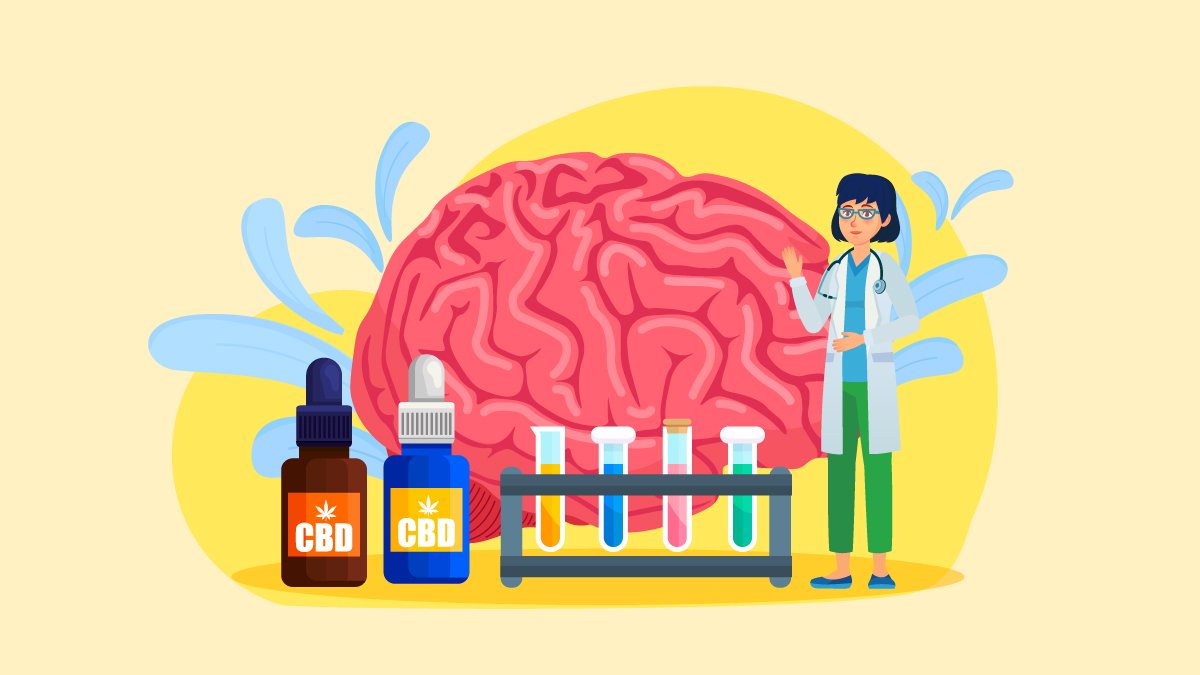CBD is a hot topic in the world of natural medicine. This cannabinoid is derived from the cannabis plant. Unlike its close relative THC, CBD does not produce a high or intoxication. Instead, it’s being used to help manage a wide variety of health conditions – everything from anxiety and depression to chronic pain and inflammation.
CBD works by interacting with our body’s endocannabinoid system, which regulates many crucial functions including sleep, appetite, mood, and immune response. By positively affecting four receptors, CBD can bring relief to an array of symptoms!
CB1 Receptor.
Cannabidiol (CBD) has been gaining a lot of popularity lately due to its many health benefits. One area that it particularly impacts is the brain, directly affecting our CB1 receptor.
Located primarily in the central and peripheral nervous systems, this receptor plays an important role in physiological processes such as pain and inflammation reduction and anxiety alleviation, making CBD an effective treatment choice for those issues. CBD binds to the CB1 receptor, altering nerve stimulation to reduce symptoms 24 hours a day. This continuing treatment supports the long-term health of your brain!
Click here – Types of Saree Fabric: A Guide to Choosing the Perfect Saree for You
CB2 Receptor.
What sets CBD apart from other substances with similar healing properties is that it interacts with the human body in distinct ways through its interaction with specialized receptors.
The CB2 receptor found in the human body closely resembles the receptors found in cannabis plants. When CBD binds to this receptor, anti-inflammatory effects are produced within the body which makes it a valuable resource for those looking for pain relief or inflammation reduction.
Furthermore, studies have shown that when binding with CB2 receptors, CBD inhibits cytokines, reducing immune response where it has been deemed unnecessary or out of balance. Thanks to its ability to positively interact with the CB2 receptor, CBD is an invaluable addition to many peoples’ well-being plans.
Serotonin 5-HT1A Receptor.
The serotonin 5-HT1A receptor is responsible for regulating many important brain functions. It plays a crucial role in the release of hormones and neurotransmitters, which are important for our mood, social behavior, appetite, sexual desire and sleep regulation.
CBD has been found to interact with this receptor in an incredibly positive way – reducing anxiety, increasing feelings of relaxation and contributing to a better night’s sleep. Additionally, when CBD binds to the 5-HT1A receptor, it helps regulate other crucial elements such as pain perception and nausea.
By having an effect on this important serotonin receptor, CBD is a natural way of helping people manage their symptoms in a safe and effective manner.
Click here – The Future Of Phone Charging: How Kiosks Are Changing the Game
Adenosine A2A Receptor
The adenosine A2A receptor, the fourth and final brain receptor positively affected by cannabidiol (CBD), promotes wakefulness and controls dopamine levels, both of which are incredibly important for overall healthy brain functioning.
Researchers from around the world have found that CBD does an excellent job of calming anxiety signals, balancing emotions, and providing a sense of well-being due to its effects on the A2A receptors. By supporting this receptor—while inhibiting others in the body—CBD can help you maintain an optimal state in order to enjoy better mental health and well-being.
CBD positively affects four major brain receptors: CB1, CB2, serotonin 5-HT1A, and adenosine A2A. By understanding how CBD affects these receptors, we can begin to understand how it provides the various medicinal benefits that have been ascribed to it. If you or somebody you know is seeking relief from a wide variety of ailments and conditions, consider trying CBD water as an all-natural well-being remedy.

